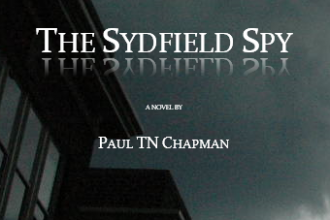I recall that as a child, going to the doctor was relatively simple. The doctor’s principle piece of equipment was his stethoscope, followed by a reflex hammer, and of course, his massive arsenal of hypodermic syringes. He had a set fee for office visits, and I never knew what that was.
In contrast, I saw my physician before I left the East Coast a few years ago. He remarked that he had ‘gone through medical school and residencies to become a data entry technician’. Everything was done on computer. He had a stethoscope too, but aside from that, there wasn’t much resemblance between him and my paediatrician. My childhood doctor smiled and whacked me with his reflex hammer before giving me the latest injection; my adulthood physician smacked a keyboard and remarked, ‘An autopsy would be more informative.’ He didn’t give injections—you had to go to a specialist. He had a set fee too, but with co-pays and insurance coverage, I never understood what it was.
I started considering how much everything has evolved, and, putting technology aside as a consideration, how easy it is to stray from your origins. I have lost count of the number of times I have started this article. I wanted to talk about focus and commitment to an idea, but each time I managed to go off on a tangent and produce something other than I wanted. It’s comical (unless you’re me.)
I began writing articles for publication because I wanted to discuss human interaction, communication, language fads, creativity, and share reminiscences in rare nostalgic moments. In the summer I was invited to join an online ‘family’, which was supposed to be supportive; initially the experience evoked thoughts of dedication and doing right even when it was disagreeable. The group, however, appeared to have forgotten its original purpose, and developed into a platform for rant and braggadocio, so I left. Other events elsewhere excited my interest, and I became a rather intense social commentator.
That was never what I wanted. I don’t regret anything I’ve written, and I don’t disagree with my points of view on those matters, but I do regret leaving behind my original intention—to write positively, not aggressively, and informatively.
There’s a difference between an idea evolving (one link connecting to another), and going from idea to idea the way an ape swings from tree to tree (leaving behind one for the next). The human mind cannot be said to be orderly (which why logic is a discipline). Even the most methodical thinkers are subject to stray thoughts and curiosities. The best thinkers do not forget their original intention, and they have the discipline to stick with it. As an example, the Nobel Prize winning physicist Richard Feynman was also an artist, known by the pseudonym Ofey. He sold and exhibited his artwork, and he never sacrificed his interest or work in theoretical physics to do so.
In contrast to Dr Feynman’s example, many of us become distracted by ‘shiny objects’ and forget what it is we’re meant to be doing. Singular purpose becomes a tangled web of undisciplined ideas and desires. Small thoughts, and small mental wanderings, have major consequences. The introduction of the computer in the doctor’s office, for example, was meant to give the doctor more time to spend with his patients, except that s/he spends too much time on this ‘device of expedience’. Many homemaker devices were meant to be ‘labour saving’ and are more complicated and time-consuming to use than their ‘primitive’ ancestors. The original intention has been lost or forgotten.
The Tangled Web is not limited to creativity, or to science, but drapes itself over humanity in general. A bit of distraction is normal and welcome, the way you might take a quick walk around the block before resuming your labours. For a lot of us, the quick walk becomes an exploration of unknown territories from which we may not return.
The problem isn’t a modern one. In the Psalms of David, the psalmist wrote: I am like a sheep that is lost; seek your servant, for I do not forget your commandments. (Psalm 119:176). The Tao Teh Ching refers in several places to returning to the origin.
So, whatever we do requires full attention and focus if we are to accomplish our purpose. Some like to hurry it along, and do more than one thing simultaneously. Several cultures have a version of the proverb: If you chase two rabbits, you will not catch either one. This is characteristic of people who mistake activity for achievement. They splash about, and in the end, accomplishing nothing, and by now may be so frustrated that they give up their original intention.
Perhaps it is better to do nothing until you really love it, then love it completely so you can do it well. Be faithful to your love.
Great thoughts, great accomplishments, great kindnesses need an anchor.
————————————————————————–
If you enjoyed reading this, please take a look at my eBooks on Amazon.com:
Behind These Red Doors: Stories a Cathedral Could Tell : http://amzn.to/1iGMFUp
Lives of the Ain’ts: Comedic Biographies of Directors Errant: http://amzn.to/1nPvqoc
The Inn of Souls: http://amzn.to/1lD7xjJ




